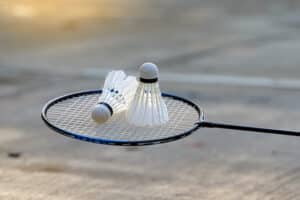Who Invented Cornhole?
Key Takeaways
- The true inventor of cornhole remains unknown, and the game’s history is filled with debates and uncertainties.
- Heyliger de Windt’s 1883 patent for “Parlor Quoits” provides early evidence of the game’s existence, but it does not definitively establish him as the inventor of cornhole.
- Cincinnati, Ohio, played a crucial role in popularizing cornhole and is often considered the birthplace of modern cornhole.
One of the most popular backyard games in the United States, cornhole has gained widespread popularity in recent years. The game involves tossing bean bags onto a slanted board with a hole in it, aiming to score points by landing the bags in the hole or on the board. While cornhole has a rich history, the question of who exactly invented the game remains a topic of debate.
The Heyliger de Windt Connection
According to Wikipedia, cornhole was first described in Heyliger de Windt’s 1883 patent for “Parlor Quoits.” De Windt’s version of the game used a square hole instead of the modern round hole seen in today’s cornhole boards. This patent is often cited as evidence of de Windt’s role in inventing the game. However, it is important to note that de Windt’s patent does not explicitly mention the name “cornhole,” and his version of the game differed slightly from the modern version.
The Cincinnati Origins
While Heyliger de Windt may have played a part in the game’s early development, cornhole as we know it today is often credited to its origins in Cincinnati, Ohio. According to CornholeMart, the game gained popularity on Cincinnati’s west side in the 1980s. The first documented cornhole game was played in Cincinnati, marking the city as a significant hub for the game’s growth and development.
Debates and Uncertainties
Despite the connections to Heyliger de Windt and Cincinnati, the true inventor of cornhole remains unknown. As mentioned earlier, de Windt’s patent does not explicitly mention the name “cornhole,” and his version of the game differed from the modern version. The game’s history is shrouded in multiple stories and debates, making it difficult to pinpoint a single creator.
Some theories suggest that cornhole was played by ancient civilizations or Native American tribes, while others believe that Germans were the original creators of the game. There is even a version that suggests cornhole was invented by a nineteenth-century Midwestern farmer named Jebediah McGillicuddy. However, there is no strong evidence or definite answer to support any of these claims.
The Importance of Cincinnati
While the true inventor of cornhole may forever remain a mystery, the significance of Cincinnati in the game’s history cannot be overlooked. The city played a pivotal role in popularizing the game, and it is often considered the birthplace of modern cornhole. Cincinnati’s west side, in particular, served as a hotspot for cornhole enthusiasts and helped spread the game’s popularity throughout the region.
Conclusion
In conclusion, the question of who invented cornhole remains unanswered. While Heyliger de Windt’s 1883 patent for “Parlor Quoits” provides early evidence of the game’s existence, it does not definitively establish him as the inventor of cornhole. The game’s true origins are still a subject of debate and speculation, with various theories suggesting different creators, from ancient civilizations to Germans or even a fictional farmer named Jebediah McGillicuddy. However, what is clear is that Cincinnati played a crucial role in the game’s growth and popularity, making it an important city in cornhole’s history.
Related Websites:
FAQs:
Q: What are the basic rules of cornhole?
Cornhole is a game where players take turns throwing bean bags at a raised platform with a hole in it. The goal is to land the bean bags on or inside the hole to score points. The team or player with the most points at the end of the game wins.
Q: Where did cornhole originate?
The origins of cornhole can be traced back to ancient civilizations like the Romans and Greeks, as well as early European lawn games. In America, cornhole has strong connections to Native American culture and was later influenced by German immigrants in the Midwest.
Q: Who were the pioneers in the development of cornhole?
The development of cornhole can be attributed to various individuals and communities. While there are documented references in literature and folklore surrounding its creation, local legends and stories play a significant role. Social gatherings and community events also contributed to the game’s evolution.
Q: How did cornhole become so popular?
Cornhole’s popularity grew from being a regional pastime to a national phenomenon. The game’s widespread adoption can be attributed to the impact of media and popular culture, which showcased cornhole in various forms of entertainment and highlighted its fun and social aspects.
Q: What is the significance of ongoing research on cornhole’s invention?
Ongoing research and theories surrounding the invention of cornhole contribute to the understanding of its historical roots and development. It allows for a deeper appreciation of the game’s cultural significance and the diverse influences that shaped its evolution.






